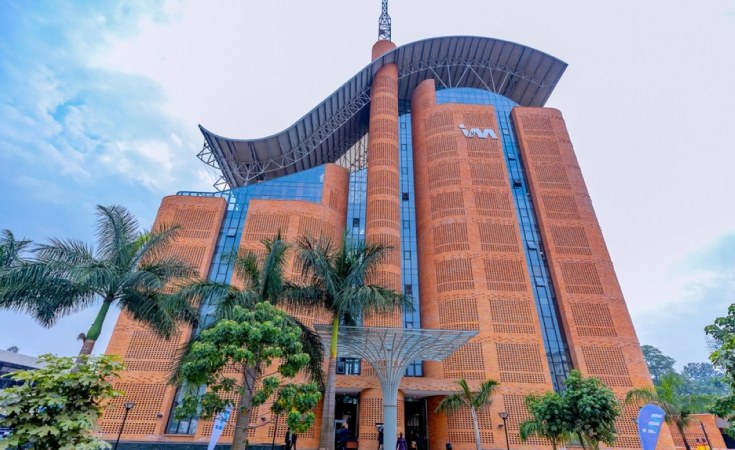The government is planning to start rewarding green buildings as a way of encouraging green technologies in the country's construction sector.
Edward Kyazze, the Director General in charge of Urbanization, Human Settlement, and Housing Development at the Ministry of Infrastructure, disclosed the plan while responding to concerns raised by Senators on November 14 over the lack of compliance with the green building code.
Kyazze said the developers who will not comply with recommended green building features will not get construction permits.
"There are basic requirements for developers as they request construction permits. To ensure green building, the construction materials must be locally sourced. 50 per cent of these materials must be locally made. This means that by reducing the transport cost of imported materials to ports and from ports to Rwanda, we reduce greenhouse gases from the transport sector," he said.
Buildings must also allow natural lighting into the house during daytime.
Green buildings are built with high-performance windows to generate more sunlight and daylighting.
Windows are purposefully designed and placed to give residents a connection between indoor and outdoor environments through the introduction of sunshine and views.
"The green building must have natural ventilation to supply fresh air in a way that they do not rely on air conditioners. This will result in using less electricity," Kyazze said.
Energy efficiency to ensure energy saving, he said, is one of the green building characteristics.
LED lights save energy since they consume less electricity and do not require bulb replacement for many years. Green buildings can have solar panels to generate solar energy.
"The developers must ensure they do not use paints with dangerous chemicals."
Green plot ratio
He said there is a plan to establish a Green Plot Ratio (GPR), a sustainable urban planning concept that measures the ratio of green space to total plot area in a given development or city. Kyazze said the parking should also be designed in a way that 20 per cent of runoff water penetrates into the soil in a plot zone.
"This is a serious issue because 99 percent of the land around buildings is paved and doesn't allow penetration of water into the soil which causes flooding. We are thinking of establishing a law to enforce the parking redesign. We are also mulling over a levy to be provided by building owners whose high percentage of the land is paved and is not allowing water penetration into soil," he noted.
He said there is a need for landscaping to have trees and gardens in the plot area.
"We are considering the possibility of starting to reward green buildings since they comply with the Green Building Minimum Compliance System," he noted.
The Rwanda Green Building Minimum Compliance System is a technical document developed by the Rwanda Housing Authority (RHA). Lately, although the green building minimum compliance system is not mandatory for residential developments, willing building owners and real estate developers are encouraged to adopt the system on a voluntary basis to meet sustainable development targets.
Green buildings incorporate recyclable or recycled materials, non-toxic paint, carpeting, and furniture with reduced volatile organic compounds and use water-saving fixtures and other measures. Cooling roofs reflect heat and light away from the home, increasing the overall efficiency of the home's heating and cooling system. Dust and other outside air pollutants are reduced using advanced air filters.
Water from the roofs is harvested in large underground cement tanks for home consumption and small-scale irrigation, allowing erosion control in the settlement.
Rainwater harvesting systems can be used for watering your garden, washing the car, and even for toilets, saving gallons of water. Rainwater harvesting controls soil erosion and flooding.
Wastewater is also recycled for reuse.
Awaited green building projects in Kigali include Kigali Green Complex and the second phase of Vision City, projects of Ultimate Developers (UDL), a subsidiary of Rwanda Social Security Board (RSSB).
Vision City [phase 2] is a residential project of almost 1,500 houses in Kigali. Its key features include PV panels and solar thermal water heating systems, energy and water-efficient plumbing fixtures, advanced wellness enhancements, integrated air quality sensors, and the use of smart appliances.


